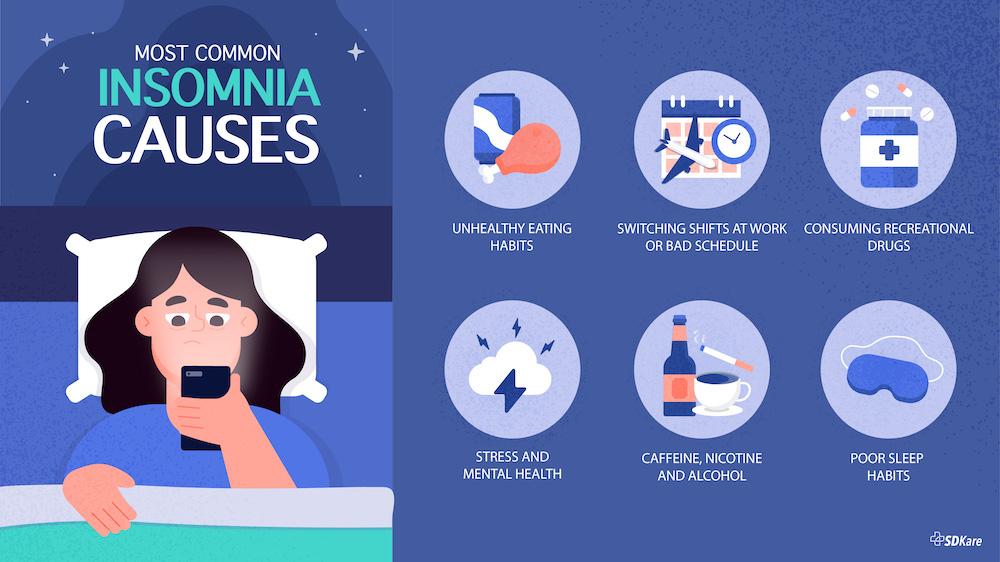Why can’t I sleep? This is one of the most commonly asked questions by many people these days. Insomnia is a sleep disorder that either makes it difficult for a person to fall asleep or stay asleep. As per the Centers for Disease Control and Prevention, an adult person requires at least 7-9 hours of sleep every day.
Research shows that 25% of the population in the US experience insomnia, while 75% of the people avoid developing long-term insomniac problems. As much as learning about the causes of insomnia is important, similarly, we need to know about the treatment, symptoms, and types of insomnia as well.
Is Insomnia a mental illness?
Many people confuse insomnia being a mental illness. We can say that there is a close relationship between insomnia and many mental health conditions. Most of the people with mental conditions also experience insomnia. Insomnia itself can increase the risk of mental health conditions.
What does it mean to have Insomnia?
A person who is having trouble sleeping could show many signs of insomnia. Such people could consistently wake up in the middle of the night showing many signs or symptoms of insomnia.
- Daytime sleepiness or lethargy
- A general feeling of being mentally or physically unwell
- Mood changes
- Being irritated by normal things
- Being anxious
- Poor concentration and focus
- Low motivation or energy
- Headaches
- Difficulty socializing and working
Also, the above-mentioned signs also could be the leading causes of insomnia. Apart from that, insomnia could also lead to many other diseases such as:
- Obesity
- Diabetes
- Depression
- Cardiovascular Problems
It can also cause major problems in the professional or personal life as it leads to less brain activity that makes it difficult for a person to understand.
What are the types of insomnia?
Insomnia is classified into its types on the basis of the duration as follows:
- Transient Insomnia: Less than one month
- Short-Term Insomnia: Between one and six month
- Chronic Insomnia: More than six months
Insomnia is also classified as the following:
- Primary Insomnia: Insomnia that is present with no other co-existing disease.
- Co-morbid Insomnia: When insomnia exists in conjunction with another medical or psychiatric condition.
What are the causes of insomnia?
There can be a wide range of physical or psychological factors that can cause insomnia. The most commonly asked question is what causes insomnia? Often, a temporary problem, such as stress could be the reason, but some of the common causes of insomnia are as follows:
- Switching shifts at work
- Having jet lag
- The room being too hot or cold, or the bed being uncomfortable
- Having little to no exercise
- Night terrors or bad dreams
- Using recreational drugs
- Unhealthy eating habits
- Consuming caffeine, nicotine, and alcohol
- High amount of screentime before bed
In some situations, psychiatric conditions could also be the reason for insomnia such as:
- Anxiety
- Depression
- Bipolar disorder
- Schizophrenia

What is the treatment of Insomnia?
The best approach to treating insomnia is by understanding the causes and different types of insomnia. However, without getting a detailed diagnosis from a licensed medical provider you should not be using the treatments by yourself which are as follows:
- Counseling or Therapy
- Cognitive Behavioral Therapy (CBT)
- Prescription/Medication Management
- Improving Sleeping Habits
- Lifestyle Changes
Understanding the causes of insomnia along with its different types and treatment methods might help you but without the consultation or diagnosis of a licensed medical provider, you should take any step. If you are experiencing some of the signs mentioned above then you should apply for a detailed diagnosis at SDKare and get the treatment plan for your insomniac problems as per your needs.




